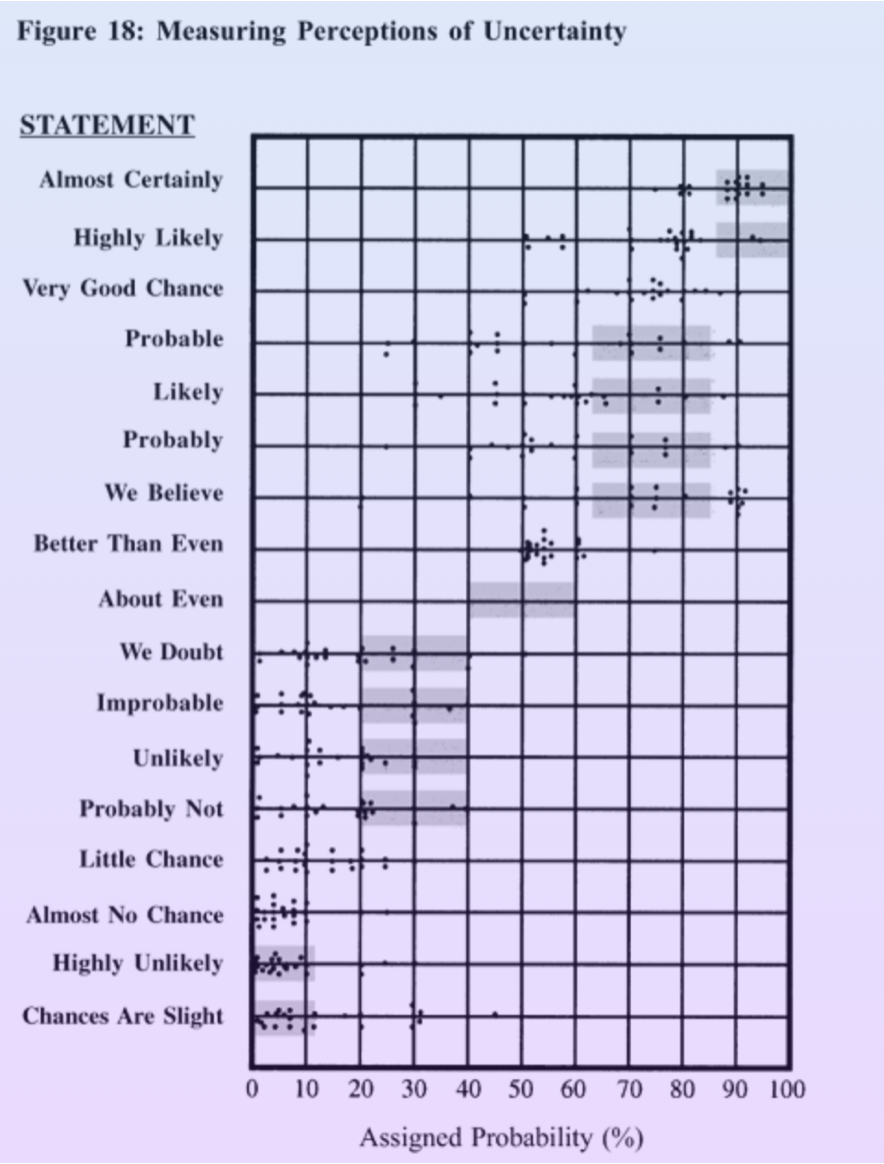Levels of Uncertainty
We are all forecasters.
We have expectations about how the future will unfold; these expectations are forecasts.
The future is unknown and uncertain. And yet, each possible future is not equally probable. Our forecasts accept this fact.
It is non-trivial to assign probabilities to events arising from a complex world. More so, with very limited information. Our brains are not designed to assign specific probabilities to events.
Speaking about uncertainty is difficult.
Nevertheless, our language contains a host of terms to describe uncertainty. To give some indication of our conviction. Probably, Likely, Almost Certainly, Believe, Unlikely, Little Chance, amongst others.
We all know what these terms roughly mean.
But if action in the real world is downstream of these vague assessments, it is worth knowing what exactly do these labels mean and what can we therefore infer about the future.
The CIA certainly thought so. The image above is taken from a survey of 23 NATO officers carried out by Sherman Kent in the 1960's and published in the 1977 Handbook for Decision Analysis (Barclay et al.).
We roughly agree about what these terms mean, but we are not precise.
As communicators, humans are imperfect. Our thoughts get lost in translation.
When we encode information in language, the words we speak (or write) is an approximation of the intended meaning. When those same words are heard (or read) by the audience, the decoding process introduces further drift from the initial intent.
Lossy communication is the rule of language.
Has this understanding of our language of uncertainty changed in the 50 years since? Reddit user zonination polled 46 other Reddit users and came to strikingly similar conclusions - beautifully visualised.
In listening to the forecasts of others, not only is the future uncertain. There is uncertainty in our interpretation of their uncertainty.
— — —
Sources & Inspiration
Handbook for Decision Analysis by Barclay et al.
Zonination on Reddit
Superforecasters by Philip Tetlock.

